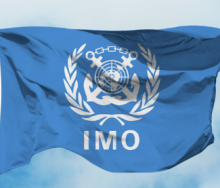Manufacturers and logistics companies involved in exporting to a growing number of countries will have to factor in reverse logistics or repurposing/reuse at the destination of packaging materials, including pallets.
Since January 2024 exporters to the United Kingdom have had to report how much packaging they use and pay a fee to account for the recycling costs. This regulation comes into force in the European Union in 2025.
The objective of the “polluter pays” principle is to move the costs of recycling and waste management from local governments to the producers of the packaging.
There is similar legislation around the world.
Japan's legislation promotes the 3Rs (Reduce, Reuse, Recycle), which requires businesses to take responsibility for recycling packaging waste.
In the United States, Maine, Oregon, California and Colorado have passed extended producer responsibility regulations, and more are expected to follow.
Two Brazilian states – Paraiba and Pernambuco – have adopted legislation which holds suppliers responsible for the reverse logistics of both consumer and industrial packaging.
Closer to home, the African Circular Economy Alliance, established by South Africa, Nigeria and Rwanda in 2017 at COP23, has identified plastic packaging as an area that offers immediate opportunities for increased circularity.
For governments, citizens and the environment it is a win-win trend.
The Canadian government estimates that the implementation of a plastics circular economy will, in addition to reducing plastic and carbon pollution, generate billions of dollars in revenue and create approximately 42 000 jobs by 2030.
It is estimated that the South African plastics collection value chain sustains around 58 000 jobs, but that only 50% of recyclable waste is collected.













